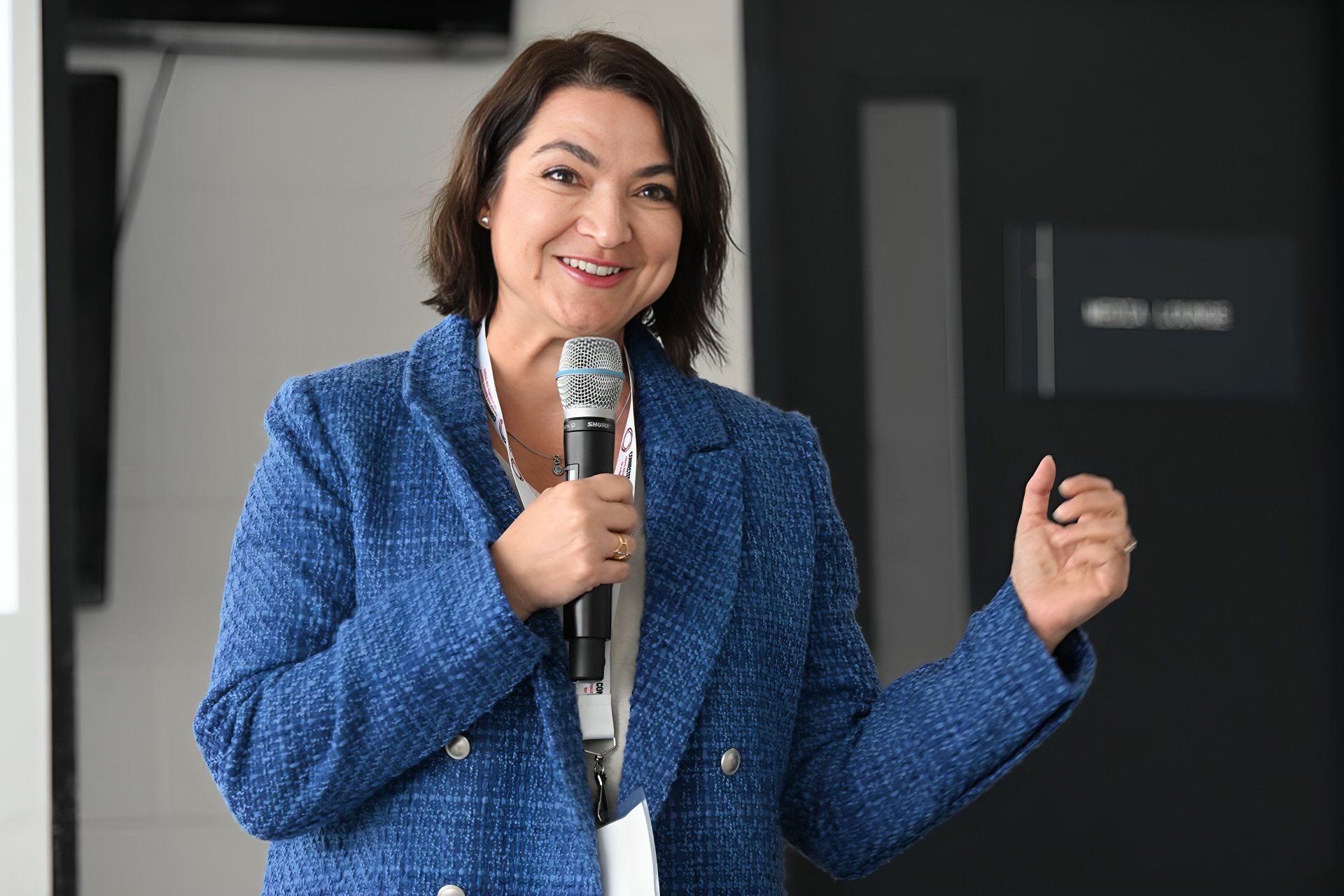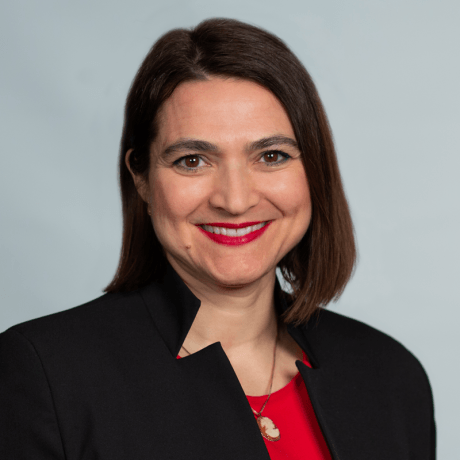
At Connected Minds, we believe that innovation flourishes where diverse expertise and bold ideas meet. Following the success of our inaugural round, we are excited to announce the recipients of the second round of the Connected Minds Seed Grants. These projects, supported by the Canada First Research Excellence Fund (CFREF), highlight our continued dedication to supporting pioneering interdisciplinary research that bridges technology and society, driving progress toward a more inclusive, equitable, and sustainable future for all.
With our second round of Seed Grants, we are inspired by the potential of these initiatives to reshape conversations around technology’s role in society. From improving digital accessibility to pioneering cognitive health solutions, these projects are charting bold paths forward. We can’t wait to see these projects come to life.
Congratulations to this year’s grant recipients! These projects are propelling us further on our journey toward a brighter, more connected future. Explore the innovative work they’re leading below!

Elham Dolatabadi - Development and Evaluation of Multimodal Neural Models for Health within Canada
Elham Dolabatabi, Assistant Professor in the Faculty of Health at York University, leads the project “Development and Evaluation of Multimodal Neural Models for Health Within Canada.” By combining electroencephalogram (EEG) with functional Magnetic Resonance Imaging (fMRI) and Functional Near-Infrared Spectroscopy (fNIRS), the research aims to make BCI technology more affordable and accessible. The project involves collaborators from the Vector Institute – one of our Connected Minds secured partners – and the University of Toronto, focusing on inclusive healthcare solutions to underrepresented communities. It also emphasizes equitable data collection, model development, and clinical testing, along with tailored training sessions for underrepresented scholars.
Denielle Elliott - Between Alzheimer's and War: The Struggle for Intimate and Social Memory in Yarumal, Colombia
In her project "Between Alzheimer's and War: The Struggle for Intimate and Social Memory in Yarumal, Colombia," Denielle Elliott, a Professor in the Faculty of Liberal Arts & Professional Studies at York University, explores how Alzheimer’s drug innovation intersects with memory preservation in Yarumal, Colombia. This town is affected by both a hereditary form of Alzheimer’s and the legacy of armed conflict. Collaborating with experts from the Neurosciences Group of Antioquia and Medellín University, the research examines the social and historical factors influencing Alzheimer’s drug development, the impact of conflict on clinical trials, and the role of hope in promoting equity. Through ethnographic methods, the project documents the experiences of Alzheimer’s-affected families while addressing healthcare inequities in the Global South.


Mahtot Gebresselassie - Developing an AI-Based Tool for Optimizing Disability Accessibility of Pedestrian Networks in Marginalized Neighborhoods
Addressing the pressing accessibility barriers faced by wheelchair users, Mahtot Gebresselassie, Assistant Professor in the Faculty of Environmental and Urban Change at York University, leads the project "Developing an AI-Based Tool for Optimizing Disability Accessibility of Pedestrian Networks in Marginalized Neighborhoods." Focusing on the Jane and Finch area in Toronto, the project integrates AI, aerial imagery, and community insights to enhance mobility for individuals with disabilities. With expertise from Gaussian Solutions, the research aims to transform poorly maintained pedestrian networks into inclusive pathways, supporting equitable access to transportation in marginalized communities.
Keyvan Hashtrudi-Zaad - Interactive Tools for Post-stroke Task-oriented Upper-limb Robotic Rehabilitation
Keyvan Hashtrudi-Zaad, Professor in the Faculty of Smith Engineering at Queen's University, leads the project "Interactive Tools for Post-Stroke Task-Oriented Upper-Limb Robotic Rehabilitation." This research focuses on developing a home-based robotic rehabilitation system to help stroke survivors regain arm and hand functionality by practicing real-life tasks such as pouring, ironing, and driving. In collaboration with a researcher from Providence Care Hospital, the project integrates input from stroke survivors and therapists to ensure the system is engaging, safe, and effective. It aims to increase rehabilitation access for underserved populations while addressing potential racial and ethnic differences in stroke outcomes through a diverse sample of participants.


Usman Khan - Machine Learning Integrated Quantitative Microbial Risk Assessment (ML-QMRA) for Health Risk-Based Water Treatment Optimization in Humanitarian Response
The project "Machine Learning Integrated Quantitative Microbial Risk Assessment (ML-QMRA) for Health Risk-Based Water Treatment Optimization in Humanitarian Response" focuses on improving water safety in the Kyaka II refugee settlement in Uganda. Led by Usman Khan, Associate Professor at York University's Lassonde School of Engineering, the research co-creates a machine learning tool to optimize water treatment based on microbial risk assessments. Collaborating with the Nsamizi Training Institute of Social Development, the project uses routine water quality data to reduce the risk of waterborne illnesses, particularly for vulnerable refugee populations.
Liya Ma - Mechanisms of Performance Monitoring: Marmoset Model
Liya Ma, Assistant Professor in the Faculty of Health at York University, leads the project "Mechanisms of Performance Monitoring: Marmoset Model." This research investigates the neural mechanisms underlying performance monitoring, focusing on the error-related negativity (ERN), an EEG signal associated with error detection. By comparing behavioral and neural data from humans and marmosets, the project aims to identify the brain regions involved in ERN generation. In collaboration with researchers from Sunnybrook Health Sciences Centre and the Sunnybrook Research Institute— a Connected Minds partner—the research advances understanding of how the brain monitors errors and provides insights into mental health disorders. The findings also aim to support the development of reliable, wearable EEG technologies for improved diagnostics and treatment.


Ozzy Mermut - Erasing the Racism in Optical Technologies
The project "Erasing the Racism in Optical Technologies," led by Ozzy Mermut, Associate Professor in the Faculty of Science at York University, aims to identify and eliminate racial bias in optical devices. This research evaluates how optical devices respond to variations in skin melanin content, focusing on how these variations affect the accuracy of everyday and medical tools. By developing artificial tissue models and utilizing machine learning, the project will uncover potential biases in devices used by people with darker skin tones. In collaboration with the Canadian Black Scientists Network and NIRx Medical Technologies, LLC, the project seeks to establish new standards for more inclusive, ethical optical technologies, ensuring they are accurate and equitable for all users.
Laleh Seyyed-Kalantari - Design of Benchmarks for Fairness and Bias Evaluation and De-Biasing of Natural Language Model to Incorporate User Diversity
Laleh Seyyed Kalantari, Assistant Professor at the Lassonde School of Engineering at York University, leads the project "Design of Benchmarks for Fairness and Bias Evaluation and De-Biasing of Natural Language Model to Incorporate User Diversity.” This research focuses on addressing fairness issues in large language models (LLMs), like OpenAI’s GPT, which often favor majority groups due to biased training data. The project aims to design domain-specific testing benchmarks to assess and score fairness across diverse dimensions such as race, gender, religion, and social status. By focusing on linguistic bias, particularly in the context of sentiment analysis, the work aims to mitigate stereotypes and ensure more inclusive LLMs that better support marginalized groups, including Indigenous peoples, racialized communities, and those with disabilities. In collaboration with the Vector Institute— a Connected Minds secured partner—the project seeks to advance fairness and equity in artificial intelligence technologies.


Seeding Innovation: Announcing the 6 Visionary Recipients of Connected Minds’ Inaugural Seed Grants



